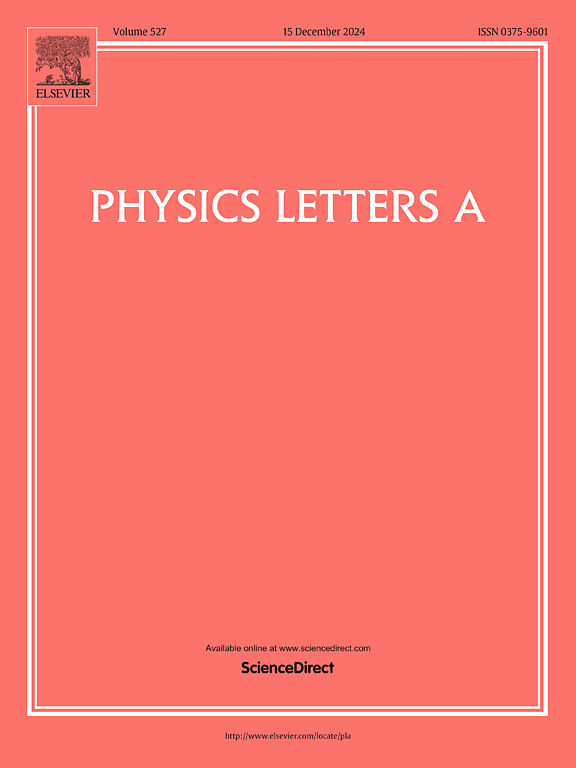Moral sensitivity drives cooperative evolution in Q-learning based donation games
IF 2.3
3区 物理与天体物理
Q2 PHYSICS, MULTIDISCIPLINARY
引用次数: 0
Abstract
This study introduces a novel donation game framework that integrates reinforcement learning with evolutionary game dynamics to explore how moral sensitivity influences cooperative behavior. By comparing Q-learning-based models with traditional evolutionary models on a two-dimensional lattice, the results show that Q-learning models significantly enhance adaptability and promote cooperation, especially under high moral sensitivity and optimized donation ratios. Through detailed spatial and parametric analyses, it is shown that Q-learning not only accelerates convergence but also fosters more uniform and stable strategy distributions. These findings provide valuable insights into the interaction between moral cognition and learning mechanisms in driving social cooperation and offer practical implications for designing systems that encourage collaboration.
在基于q学习的捐赠博弈中,道德敏感性驱动合作进化
本研究引入一种新的捐赠博弈框架,将强化学习与进化博弈动力学相结合,探讨道德敏感性对合作行为的影响。通过在二维网格上比较基于q学习的模型与传统的进化模型,结果表明,q学习模型显著增强了适应性,促进了合作,特别是在道德敏感性高、捐赠比例优化的情况下。通过详细的空间和参数分析表明,q学习不仅加速了收敛,而且促进了更均匀和稳定的策略分布。这些发现为推动社会合作的道德认知和学习机制之间的相互作用提供了有价值的见解,并为设计鼓励合作的系统提供了实际意义。
本文章由计算机程序翻译,如有差异,请以英文原文为准。
求助全文
约1分钟内获得全文
求助全文
来源期刊

Physics Letters A
物理-物理:综合
CiteScore
5.10
自引率
3.80%
发文量
493
审稿时长
30 days
期刊介绍:
Physics Letters A offers an exciting publication outlet for novel and frontier physics. It encourages the submission of new research on: condensed matter physics, theoretical physics, nonlinear science, statistical physics, mathematical and computational physics, general and cross-disciplinary physics (including foundations), atomic, molecular and cluster physics, plasma and fluid physics, optical physics, biological physics and nanoscience. No articles on High Energy and Nuclear Physics are published in Physics Letters A. The journal''s high standard and wide dissemination ensures a broad readership amongst the physics community. Rapid publication times and flexible length restrictions give Physics Letters A the edge over other journals in the field.
 求助内容:
求助内容: 应助结果提醒方式:
应助结果提醒方式:


